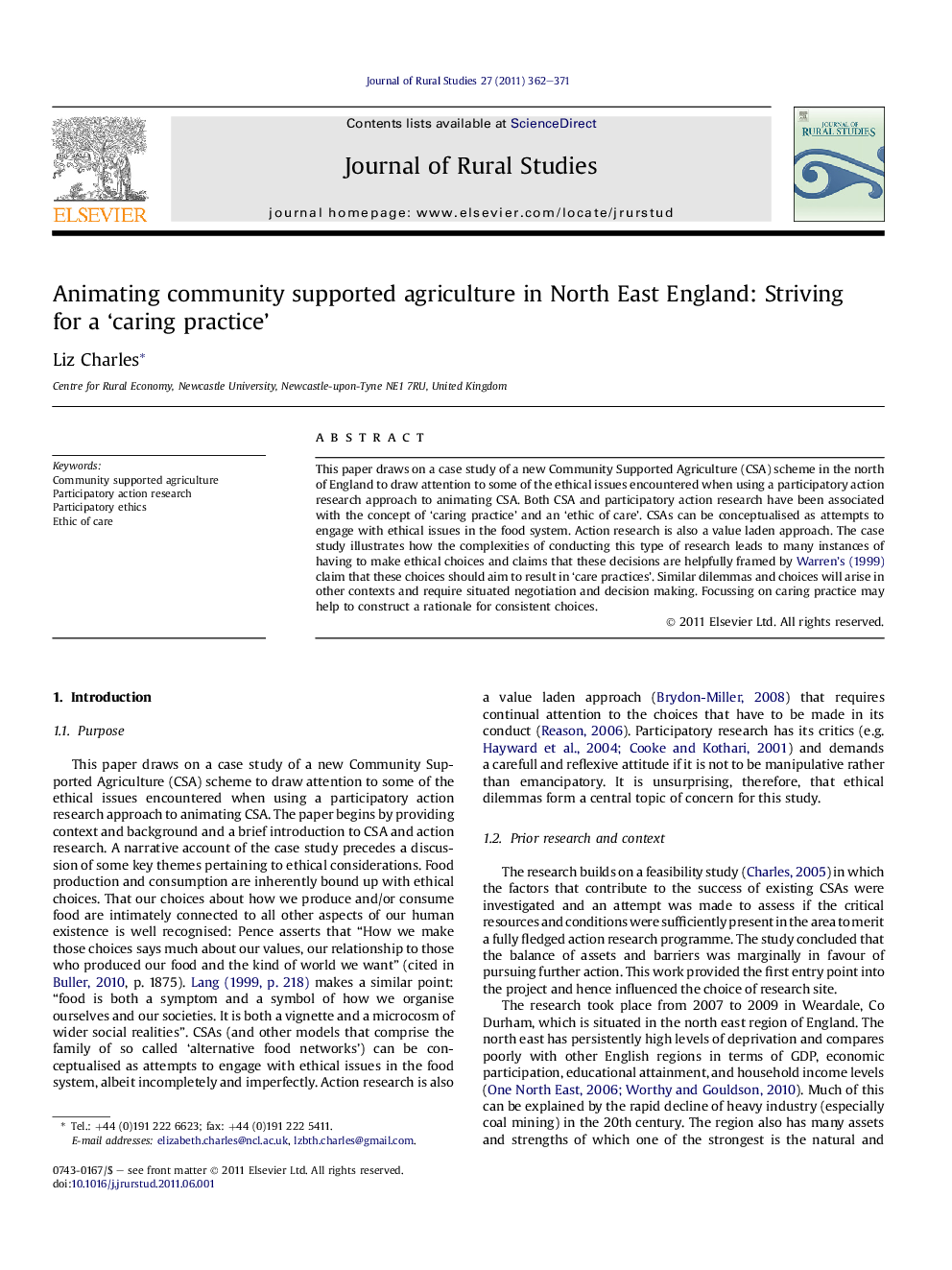| کد مقاله | کد نشریه | سال انتشار | مقاله انگلیسی | نسخه تمام متن |
|---|---|---|---|---|
| 92499 | 159976 | 2011 | 10 صفحه PDF | دانلود رایگان |
This paper draws on a case study of a new Community Supported Agriculture (CSA) scheme in the north of England to draw attention to some of the ethical issues encountered when using a participatory action research approach to animating CSA. Both CSA and participatory action research have been associated with the concept of ‘caring practice’ and an ‘ethic of care’. CSAs can be conceptualised as attempts to engage with ethical issues in the food system. Action research is also a value laden approach. The case study illustrates how the complexities of conducting this type of research leads to many instances of having to make ethical choices and claims that these decisions are helpfully framed by Warren’s (1999) claim that these choices should aim to result in ‘care practices’. Similar dilemmas and choices will arise in other contexts and require situated negotiation and decision making. Focussing on caring practice may help to construct a rationale for consistent choices.
► Case study of animating CSA using participatory action research (PAR).
► CSA and PAR are both value laden approaches and linked to care practices.
► CSA conceptualised as an attempt to engage with ethical issues in the food system.
► Ethical dilemmas arise as a result of internal and external challenges.
► Resulting choices can be guided by using a criterion of producing care practices.
Journal: Journal of Rural Studies - Volume 27, Issue 4, October 2011, Pages 362–371
